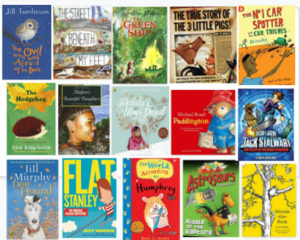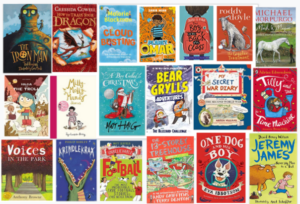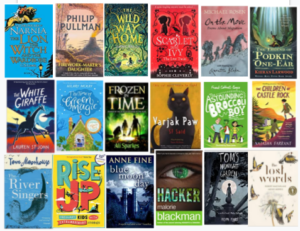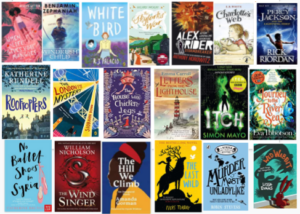Intent
Phonics (reading and spelling)
It is our intent at Christ Church that, through our English curriculum, children are inspired to be authors, storytellers, actors and communicators who develop a love of language and the written word. We believe that all our children can become fluent readers and writers. This is why we teach reading through Little Wandle Letters and Sounds Revised, which is a systematic and synthetic phonics programme. We start teaching phonics in Reception and follow the Little Wandle Letters and Sounds Revised progression, which ensures children build on their growing knowledge of the alphabetic code, mastering phonics to read and spell as they move through school.
As a result, all our children are able to tackle any unfamiliar words as they read. At Christ Church C of E Primary school, we also model the application of the alphabetic code through phonics in shared reading and writing, both inside and outside of the phonics lesson and across the curriculum. We have a strong focus on language development for our children because we know that speaking and listening are crucial skills for reading and writing in all subjects.
Comprehension
We value reading as a crucial life skill. By the time children leave us, they read confidently for meaning and regularly enjoy reading for pleasure. Our readers are equipped with the tools to tackle unfamiliar vocabulary. We encourage our children to see themselves as readers for both pleasure and purpose.
Because we believe teaching every child to read is so important, we have a Reading Leader who drives the early reading programme in our school. This person is skilled at teaching phonics and reading, and they monitor and support our reading team, so everyone teaches with fidelity to the Little Wandle Letters and Sounds Revised programme.
Implementation
Daily phonics lessons in Reception and Year 1
We teach phonics for between 10-30 minutes a day. In Reception, we build from 10-minute lessons, with additional daily oral blending games, to the full-length lesson as quickly as possible. Each Friday, we review the week’s teaching to help children become fluent readers.
Children make a strong start in Reception: teaching begins in Week 2 of the Autumn term.
• We follow the Little Wandle Letters and Sounds Revised expectations of progress:
• Children in Reception are taught to read and spell words using Phase 2 and 3 GPCs, and words with adjacent consonants (Phase 4) with fluency and accuracy.
• Children in Year 1 review Phase 3 and 4 and are taught to read and spell words using Phase 5 GPCs with fluency and accuracy.
Daily Keep-up lessons ensure every child learns to read
• Any child who needs additional practice has daily Keep-up support, taught by a fully trained adult. Keep-up lessons match the structure of class teaching, and use the same procedures, resources and mantras, but in smaller steps with more repetition, so that every child secures their learning.
• We timetable phonics lessons for any child in Year 2 or 3 who is not fully fluent at reading or has not passed the Phonics Screening Check. These children urgently need to catch up, so the gap between themselves and their peers does not widen. We use the Little Wandle Letters and Sounds Revised assessments to identify the gaps in their phonic knowledge and teach to these using the Keep-up resources – at pace.
• If any child in Year 3 to 6 has gaps in their phonic knowledge when reading or writing, we plan appropriate ‘catch-up’ sessions to address specific reading/writing gaps.
Teaching reading
In year 1, we teach children to read through reading practice sessions two times a week. These
• are taught by a fully trained adult to small groups of approximately six children
• use books matched to the children’s secure phonic knowledge using the Little Wandle Letters and Sounds Revised assessments and book matching grids on pages 11–20 of ‘Application of phonics to reading’
• are monitored by the class teacher, who rotates and works with each group on a regular basis.
Each reading practice session has a clear focus, so that the demands of the session do not overload the children’s working memory. The reading practice sessions have been designed to focus on key reading skills:
• decoding and prosody: teaching children to read with understanding and expression
• comprehension: teaching children to understand the text.
• In Reception, children read individually and will move towards practice reading sessions.
• In Year 2 and 3, we continue to teach reading in group practise sessions or individually in this way for any children who still need to practise reading with decodable books.
Home reading
The decodable reading practice book is taken home to ensure success is shared with the family.
• Reading for pleasure books also go home for parents to share and read to children.
• We use the Little Wandle Letters and Sounds Revised parents’ resources to engage our families and share information about phonics, the benefits of sharing books, how children learn to blend and other aspects of our provision, both online and through workshops.
Ensuring consistency and pace of progress
• Every teacher in our school has been trained to teach reading, so we have the same expectations of progress. We all use the same language, routines and resources to teach children to read so that we lower children’s cognitive load.
• Weekly content grids map each element of new learning to each day, week and term for the duration of the program.
• Lesson templates, Prompt cards and How to videos ensure teachers all have a consistent approach and structure for each lesson.
• The Reading Leader and SLT use the Audit and Prompt cards to regularly monitor and observe teaching; they use the summative data to identify children who need additional support and gaps in learning.
Ensuring reading for pleasure
‘Reading for pleasure is the single most important indicator of a child’s success.’ (OECD 2002)
‘The will influences the skill and vice versa.’ (OECD 2010)
We value reading for pleasure highly and work hard as a school to grow our Reading for Pleasure pedagogy.
Everybody Reading in Class
• At Christ Church, everyone across the school reads at 1:15pm for 15minutes everyday. We call this special time – ERIC, Everybody reading in class. This creates a special reading community at our school. We choose these books carefully as we want children to experience a wide range of books, including books that reflect the children at Christ Church and our local community as well as books that open windows into other worlds and cultures.
• Every classroom has an inviting book corner or library that encourages a love for reading. We curate these books and talk about them to entice children to read a wide range of books. We also have reading sheds in the KS1 and KS2 playgrounds for children to access during playtime and lunchtimes.
• In Reception, children have access to the reading corner every day in their free flow time and the books are continually refreshed.
• Children from Reception onwards have a home reading record. The parent/carer records comments to share with the adults in school and the adults will write in this on a regular basis to ensure communication between home and school.
• As the children progress through the school, they are encouraged to write their own comments and keep a list of the books/authors that they have read.
• The school library is made available for classes to use.
We also celebrate and promote reading for pleasure in our school reading community through class texts to enrich learning, engaging book corners, reading to our resident reading dog, book swaps, classes teamed up as reading buddies, author visits and national events.
Impact
Assessment
Assessment is used to monitor progress and to identify any child needing additional support as soon as they need it.
Assessment for learning is used:
• daily within class to identify children needing Keep-up support
• weekly in the Review lesson to assess gaps, address these immediately and secure fluency of GPCs, words and spellings.
Summative assessment is used:
• every six weeks to assess progress, to identify gaps in learning that need to be addressed, to identify any children needing additional support and to plan the Keep-up support that they need.
• by SLT and scrutinised through the Little Wandle Letters and Sounds Revised assessment tracker, to narrow attainment gaps between different groups of children and so that any additional support for teachers can be put into place.
Statutory assessment
· Children in Year 1 sit the Phonics Screening Check. Any child not passing the check re-sits it in Year 2.
Support with Phonics at home
The videos on this page show how we teach your child specific aspects of phonics in class.
Phase 2 sounds taught in Reception Autumn 1
Phase 2 sounds taught in Reception Autumn 2
Phase 3 sounds taught in Reception Spring 1
Christ Church Reading Expectations
|
Year group |
What we expect from school |
What we expect from home |
|
Reception |
Children will have their reading books changed weekly. Reading records will be looked at once a week. Children will be sent home a Little Wandle decodable phonic book once a week very soon. More to come on this soon. |
Children read a minimum of 5-10 minutes daily and an adult at home makes an entry in the reading record each day. Please ensure the reading record is in school everyday. |
|
Year 1 and Year 2 |
Children will have their books changed once a week. Reading records will be looked at once a week. Children will be sent home a Little Wandle decodable phonic book once a week very soon. More to come on this soon. |
Children read a minimum of 10 minutes daily and an adult at home makes an entry in the reading record each time. Please ensure the reading record is in school everyday. |
|
Year 3 and 4 |
By this age children can be reading longer books, so books will be changed when the child has finished his/her book. Reading records will be looked at once a week. |
Children read a minimum of 10-15 minutes daily. Children can write their own daily comments, but an adult should support this. Adults at home can also write comments and you may notice comments written by staff who hear your child read at school. Please ensure the reading record is in school everyday. |
|
Year 5 and 6 |
By this age children can be reading chapter books, so books will be changed when the child has finished his/her book. Reading records will be looked at once a week. |
Children read a minimum of 15-20 minutes daily. Children can write their own daily comments. Adults at home can also write comments and you may notice comments written by staff who hear your child read at school. Please ensure the reading record is in school everyday. |
Here are some ideas for reading comments you might like to use:
-
• Read familiar words independently
-
• Able to predict what happens next in the text
-
• Showed good understanding of the text
-
• Read with good expression
-
• Worked out new words independently
-
• Worked out new words by sounding them out
-
• Discussed the story and characters well
-
• Used good spoken expression
-
• Enjoyed reading this book a lot
-
• Self-corrected own errors independently
-
• Using phonics to blend words
-
• Read with fluency and expression
-
• Able to read this book, but with lots of prompting
-
• Struggled to work out a lot of the vocabulary e.g chain, chop and chair
-
• Found it challenging to retell the story
Class Great Reads for Year 3, 4, 5 and 6
Christ Church Great Reads for Years 3- 6 to help broaden our children’s reading habits by introducing them to quality age-appropriate books by a range of authors. Specially selected books to develop reading stamina and encourage children to persevere and complete a book. Once a book has been completed, children need to complete a special reading quiz, where the book will then get book ‘signed off’ on each child’s individual Christ Church Great Read Card.
Year 3 Great Reads

https://www.amazon.co.uk/hz/wishlist/ls/2ZP6VR97TI9Z1?ref_=wl_share year 3
Year 4 Great Reads

https://www.amazon.co.uk/hz/wishlist/ls/MFDIBYJZ4246?ref_=wl_share Year 4
Year 5 Great Reads

https://www.amazon.co.uk/hz/wishlist/ls/2IGZYR0N5F79J?ref_=wl_share Year 5
Year 6 Great Reads

https://www.amazon.co.uk/hz/wishlist/ls/136X8MV35E0CZ?ref_=wl_share Year 6
Christ Church Greatest Reads to come soon! Watch this space.
Writing
We plan purposeful writing and literacy lessons linked to learning topics across the curriculum with clear audiences for all children from nursery to year 6 to develop their writing skills. We use ‘Talk for Writing’ to strengthen children’s development in writing. Through talk, telling stories, adding actions and internalising story language children are confident to apply these skills in their own writing. The use of pictures on story / text maps and the process of Imitate, innovate and invent support the children in learning and writing their own stories for different purposes and audiences. Modelling the writing process is an important strategy. We believe that all good writers refine and edit their writing over time, so we want children to develop independence in being able to identify their own areas for improvement in all pieces of writing, editing their work effectively during and after the writing process – we call this process purple polishing.
We believe that every child should be given the tools to develop into enthusiastic confident writers and readers for life regardless of the starting points.
